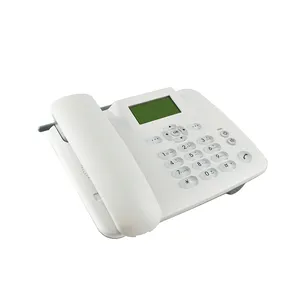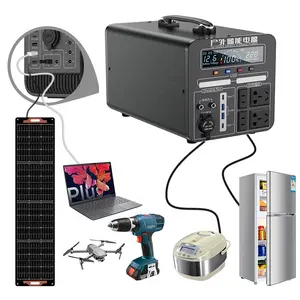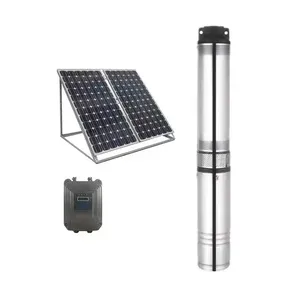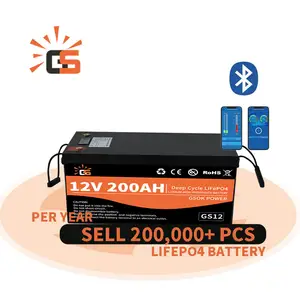





충전식 배터리 12v 200ah 태양 리튬 이온 배터리 12.8v 120ah 150ah 200ah 12v 200ah lifepo4 배터리
₩301,371 - ₩322,397
최소 주문량: 1 개
조각 당 선박: ₩109,307







24v 100ah 200ah 리튬 배터리 lifepo4 12v 300ah lifepo4 배터리 24v 100ah 5kw 10kw 리튬 배터리 24v 48v 50ah
₩166,806 - ₩444,347
최소 주문량: 1 개







Rept 280ah Lifepo4 셀 12v Lifepo4 자동차 배터리 등급 A Lifepo4 프리즘 젤 리튬 배터리 3.2v 280ah Rept 280ah
₩56,055 - ₩64,466
최소 주문량: 2 개







자동차/캠핑카 밴/RV 배터리용 24V 200Ah 딥 사이클 태양광 인버터 배터리 12V 48V 300Ah 400Ah 500Ah 리튬 이온 배터리
₩70,087 - ₩490,604
최소 주문량: 1 개













바센 그린 6000 딥 뉴 사이클 3.2V 150ah 280ah Lifepo4 배터리 아쿠 셀 50ah 100ah 300ah 리튬 이온 배터리 팩
₩32,240 - ₩147,182
최소 주문량: 4 개






Lifepo4 배터리 12V 100Ah 200Ah 300Ah 100 300 200Ah 딥 사이클 12.8V 태양열 24V 12V 리튬 이온 배터리 팩 (Bms 포함)
₩182,225 - ₩231,285
최소 주문량: 2 개
조각 당 선박: ₩140,173






딥 사이클 태양광 시스템 24V 리튬 이온 배터리 50Ah 300Ah 400Ah 100Ah Lifepo4 배터리 팩 12V 200Ah 골프 카트 Rv 마린 용
₩81,301 - ₩231,285
최소 주문량: 1 개












12V/24V/48v 100ah 200ah 300ah lifepo4 배터리 셀 리튬 이온 배터리 포크리프트 스마트 용 배터리 액세서리 포함 팩
₩127,557 - ₩137,370
최소 주문량: 5 개






EU 재고 12 V 100ah 200ah 300ah AKKU Lifepo4 리튬 이온 배터리 딥 사이클 발 태양열 시스템 12 Vol 배터리
₩196,242 - ₩532,656
최소 주문량: 1 개






YABO LiFePO4 BMS Lifepo4 배터리 팩 12V 48V 120Ah 150Ah 170Ah 200Ah 300Ah LiFePO4 리튬 이온 배터리 12V
₩48,626 - ₩842,437
최소 주문량: 1 개
조각 당 선박: ₩813,548






미국 재고 12.8V 리튬 이온 배터리 12V 24v Lifepo4 배터리 100Ah 200Ah 300AH Lifepo4 배터리 팩 48V 51.2V 가정 저장 에너지
₩193,439 - ₩543,870
최소 주문량: 2 개






딥 사이클 태양광 시스템 12V 24V Lifepo4 배터리 팩 50Ah 100Ah 150Ah 200Ah 300Ah 골프 카트 Rv 마린 용 리튬 이온 배터리
₩6,434 - ₩54,668
최소 주문량: 2 개


충전식 스마트 Bms 블루투스 12v 24v 리튬 이온 배터리 48v 100ah 리튬 배터리 400ah 200ah 120ah 100ah Lifepo4 배터리
₩182,225 - ₩186,430
최소 주문량: 1 개
조각 당 선박: ₩190,299






Qishou Lifepo4 320ah 304ah 프리즘 Lfp 리튬 이온 배터리 300Ah 310Ah 330Ah 320 A급 3.2V 320Ah Lifepo4 배터리 셀
₩25,232 - ₩137,370
최소 주문량: 4 개
조각 당 선박: ₩38,548






OEM Lifepo4 배터리 12v 24v 36v 48v 태양 전지 100ah 200ah 자동 충전식 리튬 이온 Lifepo4 배터리
₩91,113 - ₩224,276
최소 주문량: 1 개






12 볼트 12 v 100ah 100 아 150ah 200ah 300ah lifepo4 블루투스 리튬 이온 딥 사이클 태양 전지 팩
₩63,078 - ₩686,846
최소 주문량: 2 팩






OEM 12V 24V 20Ah 100Ah 200Ah 280Ah 프리즘 A 태양열 RV 골프 카트 배터리 LiFePO4 팩 배터리 리튬 이온 인산염 배터리
₩82,702 - ₩2,241,359
최소 주문량: 2 개
조각 당 선박: ₩220,071






20AH 리튬 이온 배터리 Lifepo4 12V 배터리 50Ah 100Ah 200Ah 300Ah 400Ah 태양 에너지 저장 배터리
₩23,830 - ₩583,118
최소 주문량: 2 개






LiFePo4 최고의 판매 배터리 12V 24V 48V 100Ah 200Ah 300Ah 400Ah 리튬 이온 배터리 딥 사이클 리튬 철 인산염 배터리
₩46,257 - ₩723,291
최소 주문량: 2 개
조각 당 선박: ₩424,723






12v 50ah 100ah 150ah 200ah 300ah 400ah lifepo4 배터리 비용 성능 100 ah 리튬 이온 배터리 저장 태양 광 발전
₩224,276 - ₩252,311
최소 주문량: 2 개






1kWh 2kWh 5kWh 태양 전지 리튬 이온 철 인산 12v 400Ah 300Ah 200Ah 150Ah 100ah LiFePO4 배터리 팩
배송 준비 완료
₩413,509 - ₩1,380,700
최소 주문량: 1 개
조각 당 선박: ₩499,421






EU 재고 12v 300ah 리튬 이온 배터리 12v 100ah 200ah 230ah 300ah 460ah 팩 Lifepo4 RV 태양열 배터리 팩
₩133,164 - ₩138,771
최소 주문량: 2 개






12 볼트 100 Ah 배터리 Lifepo4 12 v 100ah 리튬 이온 배터리 12.8v 300ah 12 V 24V 리튬 배터리 200ah
₩193,439 - ₩299,970
최소 주문량: 2 개
조각 당 선박: ₩186,346






17 년 Oem 골프 버기 Lifepo4 리튬 이온 배터리 12V 24V 45Ah 60Ah 100Ah 200Ah 300Ah 400Ah 요트 캠핑카
₩196,242 - ₩308,380
최소 주문량: 2 개
조각 당 선박: ₩84,104






Tycorun 태양 리튬 이온 배터리 12v 50ah 100ah 120ah 150ah 200ah 300ah 400ah Rv 골프 카트 lifepo4 배터리 팩
₩385,475 - ₩1,569,932
최소 주문량: 2 개
조각 당 선박: ₩350,432






베테리아 태양 4s 12.8v lifepo4 배터리 12v 300ah 리튬 이온 에너지 저장 리튬 철 인산염 배터리 200ah 100ah
₩841,035 - ₩981,208
최소 주문량: 2 개
















Lifepo4 12v 300ah 리튬 이온 배터리 100ah 200ah 리튬 배터리 RV, 보트, 홈 solary 시스템
배송 준비 완료
₩208,858 - ₩278,944
최소 주문량: 2 개
조각 당 선박: ₩139,752






도매 EU 재고 리튬 배터리 12V 충전식 lifepo4 배터리 팩 lifepo4 12.8v 100ah 200ah 300ah 리튬 이온 배터리
₩207,456 - ₩238,013
최소 주문량: 2 세트
조각 당 선박: ₩255,815






딥 사이클 bt lifepo4 배터리 12v 300ah 리튬 이온 배터리 팩 ev 및 태양
배송 준비 완료
₩1,247,536 - ₩1,331,639
최소 주문량: 1 개
조각 당 선박: ₩137,846






Lifepo4 배터리 12V 100Ah 200Ah 300Ah 100 300 200Ah 깊은 사이클 12.8V 태양 24V 12V 리튬 이온 배터리 팩 Bms
₩193,439 - ₩213,063
최소 주문량: 2 유닛






GoKWh 공장 가격 12V 100Ah 200Ah 300Ah 리튬 이온 Lifepo4 배터리 (블루투스 포함) RV 보트 트롤링 가정용 에너지 저장 장치
₩278,944 - ₩292,961
최소 주문량: 1 개
조각 당 선박: ₩98,121






12v 300ah 리튬 이온 배터리 정보
Alibaba.com에서 제공하는 리센 배터리로 업무 및 가정 생산성에 이상적인 초 고성능 전원 공급 장치를 경험하십시오. 이 배터리는 소비자의 선호도를 충족하고 의도 한 응용 분야에 맞게주기 수명, 용량, 크기 및 무게가 다릅니다. 리센 lifepo4는 개발 된 최신 기술로 제공되어 재충전이 가능하고 더 긴 내구성을 제공합니다.
lishen lto 배터리의 방대한 용량 범위로 인해 일정한 속도로 적절한 전류를 제공하십시오. 따라서 골프 카트, 전기 자동차, 잠수함 및 자전거에 이상적입니다. 단색 또는 파란색 등과 같은 선택적 색상으로 제공됩니다. 또한 리센 lifepo4는 충전식 기능으로 인해 에너지를 절약하고 환경 친화적입니다. 충격 방지를 위해 폼 코튼이 있습니다.
고급 리센 lifepo4를 살펴보면 Alibaba.com에서 공칭 용량과 전압을 통해 고급 출력을 얻을 수 있습니다. 사용하기 쉬운 LCD는 배터리 전원과 전압을 알려줍니다. 인기있는 디스플레이 및 쿨롱 카운터와 같은 다양한 디자인으로 제공됩니다. 인기있는 디스플레이는 배터리 전력, 온도 및 전압을 표시하는 반면 쿨롱은 시간, 용량 및 전압 전력을 표시합니다. lishen lto 배터리는 전압이 낮고 크기가 작아 가전 제품, 장난감 등에서 유용합니다.
매우 낮은 내부 저항으로 성능을 향상시키고 Alibaba.com에서 검증 된 제조업체의 엔진 시동 배터리 및 가전 제품에 이상적입니다. 또한 지속 가능하고 안정적인 전원 공급을 제공하기 위해 넓은 작동 온도를 가지고 있습니다. 저렴한 가격으로 구매할 수있는 lishen lto 배터리은 레이저 포인터, 손전등 및 기타 용도에 적합한 최적화되고 확장 된 내구성을 제공하는 원본입니다.
lishen lto 배터리의 방대한 용량 범위로 인해 일정한 속도로 적절한 전류를 제공하십시오. 따라서 골프 카트, 전기 자동차, 잠수함 및 자전거에 이상적입니다. 단색 또는 파란색 등과 같은 선택적 색상으로 제공됩니다. 또한 리센 lifepo4는 충전식 기능으로 인해 에너지를 절약하고 환경 친화적입니다. 충격 방지를 위해 폼 코튼이 있습니다.
고급 리센 lifepo4를 살펴보면 Alibaba.com에서 공칭 용량과 전압을 통해 고급 출력을 얻을 수 있습니다. 사용하기 쉬운 LCD는 배터리 전원과 전압을 알려줍니다. 인기있는 디스플레이 및 쿨롱 카운터와 같은 다양한 디자인으로 제공됩니다. 인기있는 디스플레이는 배터리 전력, 온도 및 전압을 표시하는 반면 쿨롱은 시간, 용량 및 전압 전력을 표시합니다. lishen lto 배터리는 전압이 낮고 크기가 작아 가전 제품, 장난감 등에서 유용합니다.
매우 낮은 내부 저항으로 성능을 향상시키고 Alibaba.com에서 검증 된 제조업체의 엔진 시동 배터리 및 가전 제품에 이상적입니다. 또한 지속 가능하고 안정적인 전원 공급을 제공하기 위해 넓은 작동 온도를 가지고 있습니다. 저렴한 가격으로 구매할 수있는 lishen lto 배터리은 레이저 포인터, 손전등 및 기타 용도에 적합한 최적화되고 확장 된 내구성을 제공하는 원본입니다.






































